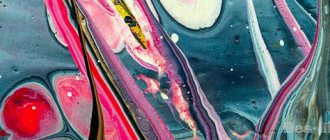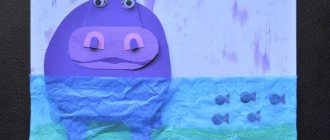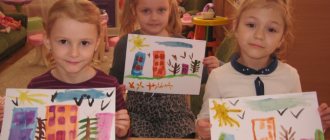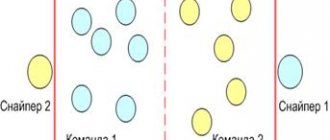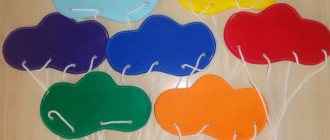Summary of GCD for drawing on the topic “My House”
author: Somova Svetlana Aleksandrovna
Teacher of MBDOU "DS "Golden Key"
Summary of GCD for drawing on the topic “My House”
RUSSIAN FEDERATION
YAMAL-NENETS AUTONOMOUS DISTRICT
MUNICIPAL BUDGETARY PRESCHOOL EDUCATIONAL INSTITUTION "KINDERGARTEN OF A COMBINED TYPE "GOLDEN KEY"
TARKO-SALE, PUROVSKY DISTRICT ______________________________________________________________________________
Abstract of GCD for drawing
in the middle group
on the topic “My Home”
prepared by: Somova S.A.
Summary of direct educational activities in drawing in the middle group on the topic “My Home”
Target:
- Teach children to draw houses, conveying the rectangular shape of the walls and the triangular shape of the roof.
- Develop the ability to supplement the image with elements based on impressions of the surrounding life.
- Activate children's vocabulary.
- To form in children an awareness of the need for a home for everyone.
- Arouse a desire to help others, a feeling of compassion.
Materials:
presentation of houses, paints, brushes, jars of water, napkins, puppy toy.
Literature:
T.S. Komarov “Lesson notes on fine arts in the middle group”, book by A. Barto
Integration of areas:
artistic creativity, communication, socialization, patriotic education, legal education.
Progress:
- Game situation “Let’s help a puppy in trouble.”
Vs:
Guys, look who I found near our door (brings in a toy puppy). His name is Druzhok. He's kind of sad. What happened, do you think? (children's assumptions)
- It turns out that the evil owners kicked him out of the house. What do we do? How can we help him in trouble?
Children's answers.
Vs:
I propose to draw houses for our guest. And he will choose one of them and settle in it.
- View a presentation of houses, highlighting the main parts of the house.
Vs:
First look at the screen. What is shown on the slides?
Children:
At home.
Vs:
Look carefully and tell me how they are similar and how they are different.
Children:
They have a roof, walls, windows, doors. They are different in color and height.
Vs:
What are houses made of?
Children:
Made of wood, brick.
Vs:
If a house is made of wood, then it is ... (wooden), if it is made of brick - ... (brick), if it is made of stone - ... (stone).
Vs:
What kind of houses do you live in?
Children's answers.
- Physical exercise “A puppy was running around the yard”
Vs:
Somehow our guest got bored. Let's cheer him up a little.
A puppy was running around the yard, He saw a piece of pie. He climbed under the porch and ate it, He fell down and began to sniffle.
- Drawing houses.
Vs:
And now we will go to paint houses for our guest.
House
We are at home. Let's draw one-story ones. Of course, they will be a little papery. Of course, they will not be very brick, but they will be white-walled, but they will be nice. For sure, no one will ever drive a puppy away from these houses.
Vs:
Who can tell me where to start drawing a house?
Children:
From the walls.
One child at an easel shows painting techniques at home.
Vs:
Let's get to work. Let's remember how to hold the brush correctly and how much paint to put on it. Don’t forget to rinse the brush thoroughly and blot it on a napkin.
Children's work.
- Exhibition of children's works. Analysis. Reflection.
Vs:
Let's see what kind of houses we got.
—Are all parts of the house drawn?
- Is it good to have your own home? Why?
Children's answers.
V-l reads A. Barto’s poem “At Home”
.
It’s raining continuously outside, But at home it’s warm and light. And you can calmly look at the brown downpours through the glass. Here you can hide from the heat, Save yourself from the frosty day. I’m drawn to a good, dear place - I’m drawn home.
Vs:
Now the puppy has a home, and not even one.
He liked all the houses. Therefore, he will live in everyone in turn. And it’s time for us to say goodbye to our guest. Goodbye, Buddy. Summary of GCD for drawing on the topic “My House”
Open art lesson
Open lesson in fine art.
"Visiting the Rainbow"
Theme: "Rainbow and Rain." Level of education: additional education.
Target audience: all ages.
OBJECTIVE OF THE LESSON:
consolidate knowledge about color: three primary colors, contrast and nuance, complementary colors, mixing colors.
EDUCATIONAL OBJECTIVES:
Get acquainted with a new genre of fine art - landscape.
EDUCATIONAL TASKS:
instilling respect for work; creating a sense of satisfaction from the work performed.
DEVELOPMENTAL TASKS
: develop artistic taste; activate creative imagination.
Equipment used:
Pictorial range: image of the color wheel, contrast and nuance, complementary colors. Reproduction depicting a landscape.
Literary series: poems about color.
PROGRESS OF THE CLASS
I. Organizational moment
.
(Checking readiness for classes).
Explanation of the topic, goals and objectives of the lesson.
II. A creative moment.
Children recite poems about colors while coloring an already prepared drawing.
.
Red color is very bright. Tomato and sweet pepper, Apple. The watermelon inside is red, red – look!
We'll take red and yellow - we'll create a new color. The orange color comes out - it will fill everything with orange.
Yellow is a very warm color, Yellow is the light of the sun in the sky. There is also a yellow lemon - it is very, very sour.
The leaf is green and the grass is, The tree is always green. We mix yellow and blue - we get green color.
The sky is blue. He is more beautiful than anyone. Glimpses grow in the forest, They bloom blue
The blue sea is raging, the foamy waves are agitated. We took a blue pencil and drew a blue circle
Violet paint Creates the color blue with red. We give a bouquet of purple violets as a gift
III. Introductory talk about color.
And so today we will talk about color. Tell me guys:
What are primary colors? And how many of them are there? What is nuance and contrast? What are complementary colors and how many are there? (consider the color wheel)……
And so let's use one drawing as an example, we will apply all this knowledge
I V. Preparation for performing work.
Here's what we need for our lesson
V. Let's start working.
First, we need to draw a clearing. Let's set the horizon. (What is a horizon?). We have divided our leaf into heaven and earth. And flowers will bloom in the clearing.
Let's start working in color. Let's draw grass in the clearing.
Now let's draw a rainbow in our sky. What little poem was taught to remember the sequence of colors in the rainbow? Let's repeat (Every hunter wants to know where the pheasant sits.) Each initial letter begins with a color.
Let's draw a red arc.
Now let's draw an orange, yellow and green arc. When mixed, what colors make orange?
Now let's draw a blue stripe on our rainbow. When mixed, what colors produce blue?
blue arc
And finally, let’s draw the last seventh arc, purple. When mixed, what colors make purple?
Now let's draw flowers in color in contrast. What is the contrasting color to green (red).
Let's draw the centers of the flowers on the nuance.
Please tell me when does a rainbow appear?...
Let's draw blue rain. When mixed, what colors make blue?
This is what we got... Please tell me what we drew??? (nature) And the image of nature is called landscape.
VI . Summing up the lesson.
So let's sum it up. We have consolidated our knowledge about color. And we got acquainted with a new genre of fine art - landscape......
